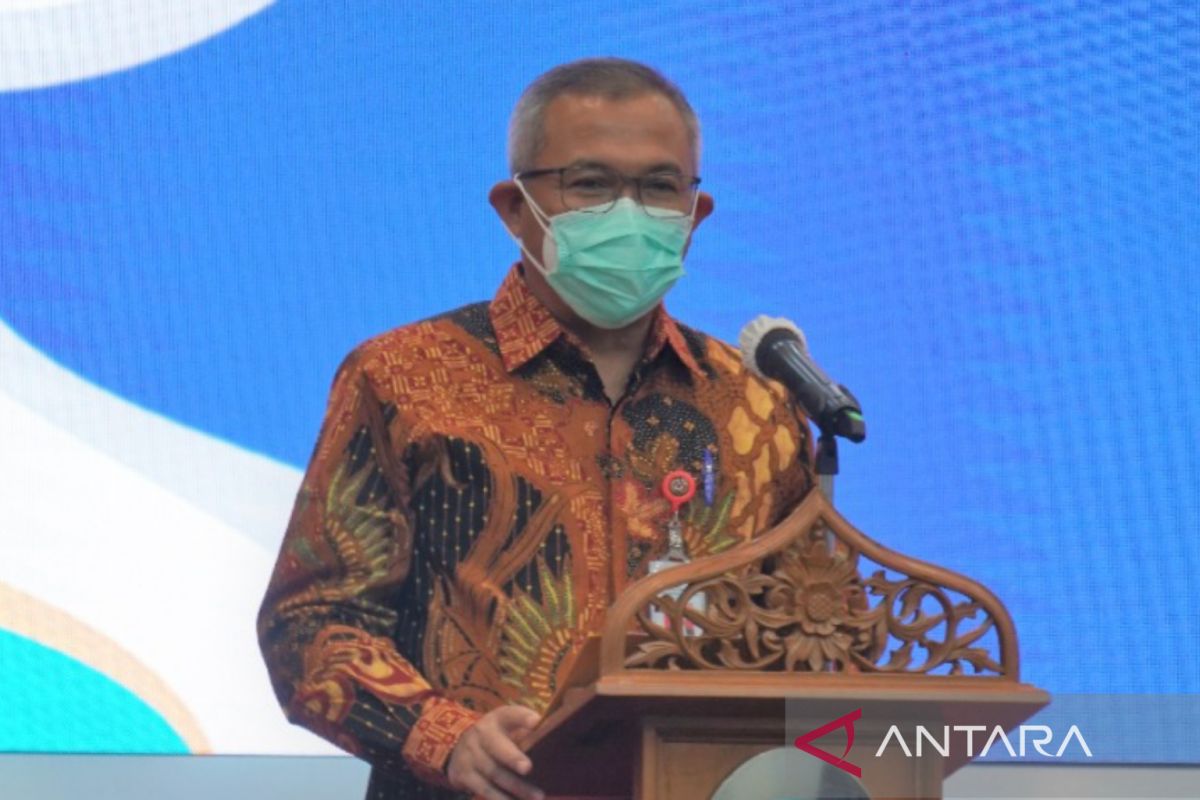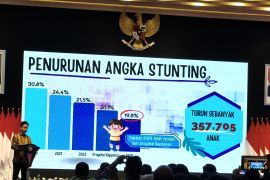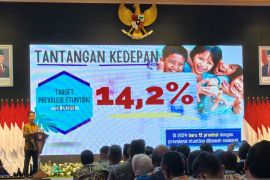We need hard work and extraordinary action to curb stunting to 14 percent by 2024 as stated in the 2020–2024 medium-term development plan (RPJMN),Jakarta (ANTARA) - Indonesia needs to work hard to suppress the prevalence of stunting to 14 percent by 2024, an official from the Coordinating Ministry for Human Development and Culture (Kemenko PMK) has said.
"We need hard work and extraordinary action to curb stunting to 14 percent by 2024 as stated in the 2020–2024 medium-term development plan (RPJMN)," deputy for coordination of health quality improvement and population development at the ministry, Agus Suprapto, said in a written statement received here on Wednesday.
Related news: Ministry promotes joint action for stunting, obesity prevention
Nationally, the prevalence of childhood stunting has been recorded at 24.4 percent, underweight children at 17 percent, and wasting 7.1 percent (SSGI, 2021), he informed.
In addition, he said, many people are still suffering from nutritional deficiency and overnutrition.
The challenge to improve nutritional status is even more significant considering that the COVID-19 pandemic can disrupt people's health, socio-economic conditions, and affect their eating patterns or food intake, Suprapto noted.
"In the efforts to achieve the target, support from all parties is needed, such as from ministries, agencies, development partners, professionals, universities, religious leaders, and community leaders," he said.
He stressed that stunting reduction must be accelerated holistically, in an integrated manner, and with quality through coordination, synergy, and synchronization between the central and regional governments as well as other parties, including the Indonesian Military (TNI) and the National Police (Polri).
Interventions should be implemented along with strategies for increasing human resource capacity and education at the level of households, integrated health services posts (Posyandu), community health centers (puskesmas), and other locations to support efforts to improve nutrition, he said.
Related news: Stunting reduction should be right on target and sustainable: KSP
He further said that National Nutrition Day could be used as a platform for joint monitoring of the health of teenagers, pregnant women, women of childbearing age, and prospective brides.
Based on data, there are 16,347,800 women of childbearing age who are not participants of the family planning program, 4,887,405 pregnant women, and 5.33 million stunted children, he added.
Related news: Preventing stunting, obesity important for building quality HR
Related news: Ministry plans infrastructure interventions to handle extreme poverty
Translator: Andi Firdaus, Raka Adji
Editor: Fardah Assegaf
Copyright © ANTARA 2022












